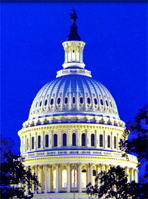E-Discovery and New Federal Rule of Evidence 502
October 1, 2008
News and Views on Environmental & Toxic Tort Federal and State Legal Issues and Developments
October 1, 2008
 On September 19, 2008, President Bush signed S. 2450 into law and new Evidence Rule 502 was added to the Federal Rules of Evidence. The new rule provides for protections against waiver of the attorney-client privilege and work product immunity. The practical effect of the new legislation should be to reduce the often staggering legal costs corporations often incur in complex litigation, particularly in producing electronic discovery. In drafting the legislation, the Advisory Committee of Evidence Rules recognized that lawyers spend significant time and effort preserving the attorney-client privilege and work product. Under the prior rule, if a protected document was produced, even accidentally, there was a risk that a court would find a subject matter waiver that would apply, not only to the instant case and document, but to other cases and documents as well. Thus, lawyers placed an enormous amount of effort (and expense) into pre-disclosure document review to protect against inadvertent disclosure. Although waiver issues always have been a concern in document-intensive litigation (and will no doubt continue to be in the future), the increased discovery burden created by e-discovery brought this issue to the boiling point over the past two years. Under the new rule, the jeopardy to corporations (and their law firms for permitting a waiver) is substantially mitigated.
On September 19, 2008, President Bush signed S. 2450 into law and new Evidence Rule 502 was added to the Federal Rules of Evidence. The new rule provides for protections against waiver of the attorney-client privilege and work product immunity. The practical effect of the new legislation should be to reduce the often staggering legal costs corporations often incur in complex litigation, particularly in producing electronic discovery. In drafting the legislation, the Advisory Committee of Evidence Rules recognized that lawyers spend significant time and effort preserving the attorney-client privilege and work product. Under the prior rule, if a protected document was produced, even accidentally, there was a risk that a court would find a subject matter waiver that would apply, not only to the instant case and document, but to other cases and documents as well. Thus, lawyers placed an enormous amount of effort (and expense) into pre-disclosure document review to protect against inadvertent disclosure. Although waiver issues always have been a concern in document-intensive litigation (and will no doubt continue to be in the future), the increased discovery burden created by e-discovery brought this issue to the boiling point over the past two years. Under the new rule, the jeopardy to corporations (and their law firms for permitting a waiver) is substantially mitigated.
The new rule does not address the scope of the attorney-client privilege or work product protection. Rather, the new rule covers issues of scope of waiver, inadvertent disclosure, and the controlling effect of court orders and agreements.
Limitation of Scope of Waiver. Pursuant to Subdivision (a), if a waiver is found, it applies only to the information disclosed. (Exception: If the party seeking the protection of the rule has made an intentional waiver or is seeking to use the privileged information in a misleading manner, Subdivision (a) may not apply.
Protections Against Inadvertent Disclosure. Pursuant to Subdivision (b), an inadvertent disclosure of privileged or protected communications or information does not operate as a waiver at the federal level, IF the holder took reasonable steps to prevent such disclosure and employed reasonably prompt measures to retrieve the mistakenly disclosed information.
Effect on State Proceedings and Disclosures Made in State Courts. Pursuant to Subdivision (c), if there is disclosure of privileged or protected communications or information at the federal level, then state courts must honor Rule 502 in subsequent state court proceedings. In the event that the disclosure of privileged or protected information occurs in a state proceeding, then admissibility in a subsequent federal proceeding is determined by the law that is most protective against waiver.
Orders Protecting Privileged Communications Binding on Non-Parties. Pursuant to Subdivision (d), if a federal court enters an order providing that the disclosure of privileged or confidential information does not constitute a waiver, that order is enforceable against all persons and entities in any federal or state proceeding.
Agreements Protecting Privileged Communications Binding on Parties. Pursuant to subdivision (e), parties in a federal court proceeding can enter into a confidentiality agreement for mutual protection against waiver in that proceeding. Such an agreement would not bind third-parties unless incorporated into a court order.